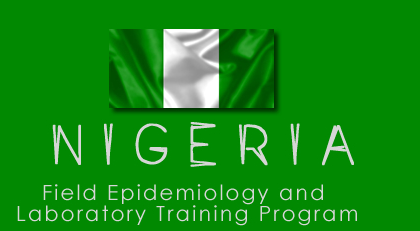Those that read our blog regularly will remember the early days when we called for a Field Epidemiology Training Programme in Nigeria to train health professionals in Nigeria on the response to outbreaks of infectious diseases in Nigeria. We were delighted to meet a team at the Emerging Infectious Disease Conference in Atlanta last year that introduced themselves as Fellows of the Nigeria Field Epidemiology Laboratory and Training Program (NFELTP).
NFELTP is a service-oriented training program in applied epidemiology, public health laboratory practice, and veterinary epidemiology.
The NFELTP is based on similar programs that have been established in more than 30 other countries since 1980. The first field epidemiology track is the U.S. Centers for Disease Control and Prevention’s (CDC) 2-year Epidemic Intelligence Service (EIS) training program. In Africa, there are maturing programmes in Uganda, Kenya, Zimbabwe and South Africa among others. The African programmes cooperate with each other
In addition, NFELTP is the first applied epidemiology program of its kind to offer a veterinary track. This enables veterinary epidemiologists to be trained alongside public health professionals to address the ever-growing threats of zoonotic and epizootic diseases to improve public health. The programme is growing and has doubled its intake this year. There is a lot to be proud of here and the challenge for us in Nigeria is to be able to sustain the funding beyond the grant from CDC, and own it, hopefully as an integral part of a Nigerian Center for Disease Control.
A programme to be proud of in Nigeria!
Never doubt that a small group of thoughtful committed people can change the world; indeed it is the only thing that ever has…Margaret Mead





